
"Rocket 88" is a song that was first recorded in Memphis, Tennessee, in March 1951. The recording was credited to "Jackie Brenston and his Delta Cats"; while Brenston did provide the vocals, the band was actually Ike Turner and his Kings of Rhythm. The single reached number one on the Billboard R&B chart.
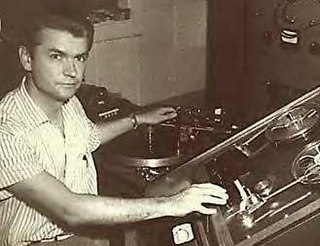
Samuel Cornelius Phillips was an American disc jockey, songwriter and record producer. He was the founder of Sun Records and Sun Studio in Memphis, Tennessee, where he produced recordings by Elvis Presley, Roy Orbison, Jerry Lee Lewis, Carl Perkins, Johnny Cash, and Howlin' Wolf. Phillips played a major role in the development of rock and roll during the 1950s, launching the career of Presley. In 1969, he sold Sun to Shelby Singleton.

John Edward Prine was an American singer-songwriter of country-folk music. Widely cited as one of the most influential songwriters of his generation, Prine was known for his signature blend of humorous lyrics about love, life, and current events, often with elements of social commentary and satire, as well as sweet songs and melancholy ballads. He was active as a composer, recording artist, live performer, and occasional actor from the early 1970s until his death.

Kid Rock is the sixth studio album by American musician Kid Rock, his fourth Atlantic Records album. It was released in 2003 and is his final release on Lava Records. It was critically acclaimed by Rolling Stone, which named it one of the 50 Greatest Albums of 2003. "Black Bob" and "Jackson, Mississippi" were recorded for his 1996 album Early Mornin' Stoned Pimp in 1995, but were left off the album. "Feel Like Makin' Love", "Cold and Empty", "Intro", "Hillbilly Stomp" and "Run Off to LA" were recorded for the demo sessions for 2001's Cocky, but did not make the cut as well. "Feel Like Makin' Love" originally had Sheryl Crow on the song. Country singer Kenny Chesney co-wrote "Cold and Empty".
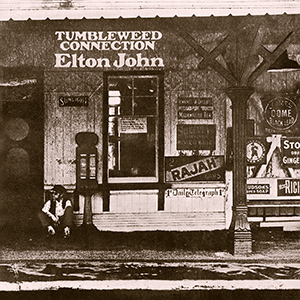
Tumbleweed Connection is the third studio album by English singer-songwriter Elton John. It was recorded at Trident Studios, London, in March 1970, and released in October 1970 in the UK and January 1971 in the US. It is a concept album based on country and western and Americana themes. All songs are written by John and Bernie Taupin, with the exception of "Love Song" by Lesley Duncan.

Class of '55: Memphis Rock & Roll Homecoming is a collaborative studio album by Roy Orbison, Johnny Cash, Jerry Lee Lewis, and Carl Perkins. It was released on May 26, 1986, by America/Smash Records, a subsidiary of Polygram Records. The album was produced by Chips Moman.

Richard Francis Vito is an American guitarist and singer. He was part of Fleetwood Mac between 1987 and 1991. Vito took over as lead guitarist after Lindsey Buckingham left the group. He is best known for his blues and slide guitar style, whose influences include Elmore James, Robert Nighthawk, B.B. King, Alvino Rey, Les Paul, George Harrison, and Keith Richards.

Uh-Huh is a 1983 album by John Cougar Mellencamp and a transition from his early work under the names Johnny Cougar and John Cougar. It was Mellencamp's seventh studio album and the first in which he used his real last name. It charted at No. 9 on the Billboard 200.

Warren Smith was an American rockabilly and country music singer and guitarist.

John McFee is an American singer, songwriter, guitarist, record producer, and multi-instrumentalist, and long-time member of The Doobie Brothers.
Clover was an American country rock band formed in Mill Valley, California and active from 1967 to 1978. Clover are best known as the backing band for Elvis Costello's 1977 debut album My Aim Is True, and for its members going on to greater success with Huey Lewis and the News, the Doobie Brothers, and Lucinda Williams.
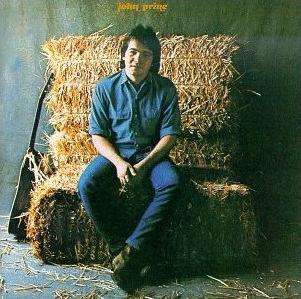
John Prine is the debut album by American country/folk singer-songwriter John Prine, issued by Atlantic Records in 1971. In 2012, the album was ranked number 452 on Rolling Stone magazine's list of the 500 greatest albums of all time. It was later ranked number 149 in a revised version of the list published in 2020.
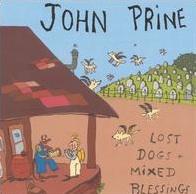
Lost Dogs and Mixed Blessings is the 12th studio album by American folk singer John Prine, released in 1995. The cover artwork is by John Callahan.

Aimless Love is the eighth album by American folk singer and songwriter John Prine, released in 1984. It is his first release on his independent record label, Oh Boy Records.
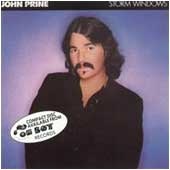
Storm Windows is the seventh album by American folk singer and songwriter John Prine, released in 1980. It was his last release on a major label; he joined Al Bunetta and Dan Einstein to form Oh Boy Records, on which all his subsequent recordings were released.

Bruised Orange is the fifth album by American folk singer and songwriter John Prine, released on May 16, 1978.
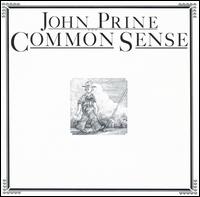
Common Sense is the fourth album by American folk singer and songwriter John Prine, released in 1975.

Sweet Revenge is the third album by American country and folk singer and songwriter John Prine, released in 1973.
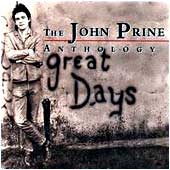
Great Days: The John Prine Anthology is a compilation album by American folk singer John Prine, released in 1993.
"Ubangi Stomp" is an American rockabilly song. Written by Charles Underwood and first released on record by Warren Smith in 1956, the song did not chart, but went on to become a rockabilly standard, covered by many artists. "Ubangi Stomp" – usually Smith's recording – appears on many compilation albums, including The Sun Records Collection and The Best of Bob Dylan's Theme Time Radio Hour.


















